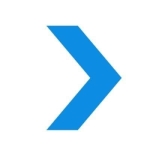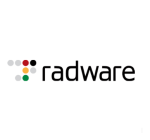What is our primary use case?
We have multiple customers using the solution for a WAF. It's also a firewall. Unlike others, where you have to purchase multiple solutions, Cloudflare has everything under one solution. It handles load balancing, CDN, order routing, DDoS protection, and more under one solution.
What is most valuable?
We like that everything is covered under one solution instead of having to buy multiple solutions and put them together.
We like that there's load balancing, firewall capabilities, DDoS protection, et cetera, all covered by Cloudflare.
Cloudflare has multiple caller sites and many PoPs. Whenever a user tries to get a webpage or any application, all the pages will be scanned with the nearest location data center or on a near-based, performing locally in the data center only. Other vendors have different services in different data centers. In Cloudflare, every data center has all the services.
Currently, Cloudflare is growing. They are exploding their data centers, which is great for clients. Previously it was 25, and now it's 28 or 30.
They are good at managing rules.
The WAF is working fine.
We find the reporting to be very granular. It's quite good.
I'm happy with whatever features are currently on offer in Cloudflare.
The solution is stable.
It's scalable.
It is an easy-to-set-up solution.
Technical support has been very good.
We find the solution competitively priced.
What needs improvement?
Finding vulnerabilities or attack patterns needs to evolve continuously. The landscape is changing. Accordingly, the rules have been changed. The Core Ruleset, is already managing that. It has been good at catching malicious activity so far. They just need to continue to invest in this aspect.
They have some limitations with third-party integrations. For example, we can't integrate with our site. On-premises, we can't do that. You can on Azure storage, of Google Cloud, however. It works better on the cloud.
For how long have I used the solution?
I've been using the solution for about one year.
What do I think about the stability of the solution?
The solution is stable and reliable. There are no bugs or glitches. It doesn't crash or freeze.
What do I think about the scalability of the solution?
The solution is scalable. It is very easy.
I'm the only person working on the solution. There's one or two of us directly on the system.
How are customer service and support?
Technical support is really good. I work on multiple products, and therefore getting a response from Cloudflare is very much appreciated. The only concern we have is with Indian support. There are some limitations to Indian support. Whenever we are planning for any deployment or PoC, the Indian customers say they're having some issues getting on a call or getting Cloudflare involved. However, support, in general, is good and usually you get a response within an hour or two.
How would you rate customer service and support?
How was the initial setup?
It's very straightforward to set up everything. In a firewall, you have to build some virtual IPs and all that stuff. However, with this, you have to just onboard your application. You have just to put out your CNAME or A records. After that, you just make some application proxies, and then you have to perform that local host testing. If you want downtime, you must make configuration changes over authority with DNS, and you can onboard your application. It's straightforward. There are not too many hurdles.
The deployment is quick. Once you do the setup, you just have to enter your records and automate the certification part and it is a half-hour process.
I'd rate it a five out of five in terms of ease of setup.
We don't require any maintenance. We just have to monitor. Whenever we are performing the login process, we are providing logs to any CS log server or any AFIM solution. That part will be taken care of by the SOC team.
What's my experience with pricing, setup cost, and licensing?
The pricing is good. We find it to be competitive. There are add-on features available as well.
I'd rate the affordability at 4.5 out of five.
What other advice do I have?
We are a system integrator for Cloudflare.
We are not on the latest update. Our last update was two or three months back.
This is a good product. It's reliable and scales well. For new users, you don't require too much expertise on Cloudflare. You just have to understand a WAF. Beyond that, it is very easy to deploy and very fast to implement.
I'd rate the solution eight out of ten.
Which deployment model are you using for this solution?
Public Cloud
Disclosure: My company has a business relationship with this vendor other than being a customer. Integrator

















